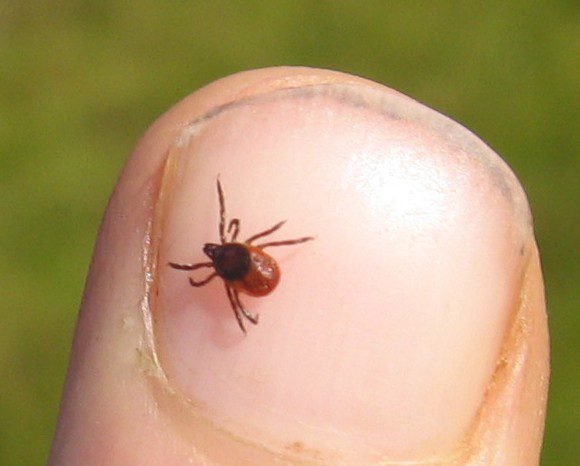Non-Core Vaccines Also Known As Lifestyle Vaccines
This is part 4 of our series Guide To Your Chihuahua’s Vaccines. In this post, we will discuss what the non-core vaccines are and what diseases they protect your Chihuahua from. You will also be able to make an informed decision about which non-core vaccines you want for your Chihuahua and why. Or whether your Chihuahua really doesn’t need any of the non-core vaccines. If you missed the first three installments you will find the links to them below.
Core vs Non-Core Vaccines
Core Vaccines
The vaccines that your dog gets every year are classified as core and non-core. What is the difference? The core vaccines include vaccines that protect your Chihuahua from:
- Parvovirus
- Distemper
- Canine Hepatitis
- Rabies
These vaccines protect your Chihuahua from some easily contracted and extremely dangerous viruses. In fact, when they are given to a dog over four months of age, they have been scientifically proven to protect him for years and likely for a lifetime.

This will be discussed in part 6 of our series, so be sure to subscribe to our “Weekly Tips” so you won’t miss any in this very important series. As a bonus you will get a FREE e-book titled; “How To House Train A Chihuahua”.
What Are The Non-Core Vaccines?
Non-core vaccines are often called “lifestyle” vaccines because oftentimes the chances of your Chihuahua getting any of the diseases that they are supposed to protect your Chihuahua from depends on where you live and their environment. These non-core vaccines are not included in the list of core vaccines for three reasons:
- They don’t always work as they should
- They don’t protect your Chi for very long
- They’re more dangerous
Let’s look at the non-core vaccines, and the virus they are supposed to prevent, and the issues surrounding them.
- Leptospirosis
- Lyme Disease
- Bordetella (Kennel Cough)
- Giardia
What Is Leptospirosis (Lepto)?
Leptospirosis is an infectious disease that can cause serious illness in dogs, other animals, and even people. It is caused by spiral-shaped bacteria that live in water or warm wet soil.
How Do Dogs Get Lepto?
Your Chihuahua may get leptospirosis through direct contact or indirectly through exposure where the leptospirosis virus lives.
The leptospires virus enters the Chihuahua’s body through the mouth, eyes, nose, and even through water-softened skin. Should your Chihuahua contract leptospirosis it can be very serious affecting the kidneys.
Is Your Chihuahua at Risk of getting lepto?
When deciding whether your Chihuahua needs the lepto vaccine ask yourself these questions:
- Do I live near and does my Chihuahua have access to ponds, lakes, streams, or standing water?
- Could they be easily exposed to dogs in boarding situations?
- Does your Chihuahua have direct contact with the urine of other wild animals (e.g. rodents, raccons, etc)?
The chances of your Chihuahua getting leptospirosis depends on where you live and their environment.
What Are Some of the Issues Concerning Leptospirosis?
The majority of dogs known to contract leptospirosis have no symptoms at all, moreover, they don’t get sick at all. That’s not to say that it doesn’t cause illness in dogs. In some cases, lepto can be fatal.
Some of the problems with lepto vaccines were highlighted in the 1996 survey where 100% of the dogs diagnosed with lepto had a lepto vaccine within the three months before the infection. Why? Because:

- Either the vaccine itself actually caused the infection or
- The vaccine didn’t contain the distinct variation of the bacteria or virus
- The vaccine contained a variation not found locally that the dog had not adapted to
- It just didn’t work
If your vet recommends a lepto shot ask yourself the questions above to determine how likely your Chihuahua is to contract lepto. Then ask your veterinarian whether he has seen a case of lepto in the last 6 months? There are over 200 versions of lepto so ask your veterinarian which version he would be giving. If not local, the vaccine won’t work.
What is Lyme Disease?
Lyme disease is caused by bacteria that is transmitted through a tick bite. Specifically a black-legged deer tick. The deer tick exists in most states in America and in some areas of Canada.
Is Your Chihuahua at Risk?
How likely your Chihuahua is to get Lyme disease depends on where you live and the environment your Chihuahua may be exposed to. Deer ticks are most likely found in tall grasses, thick brush, marshes, and woods.

As already stated, deer ticks can be found in most states and in Canada. Over 95% of cases are from the Northeast, Upper Midwest, and the Pacific coast, although because of deforestation migrating deer population is constantly changing.
In Canada, however, dogs diagnosed with Lyme disease are found mostly in southern Ontario and southern Manitoba with a small number of cases reported in southern Quebec and the Maritime Provinces.
Is Lyme Disease Serious?
Many dogs that are infected with Lyme disease never show any signs at all and it can be treated with antibiotics. Symptoms are:
- Fever
- Swollen joints and limping
- Loss of appetite
- Lethargy and/or depression
- Kidney problems
What Are The Issues With The Lyme disease vaccine?
According to The American College of Veterinary Internal Medicine, the Lyme disease vaccine is still controversial and most don’t administer them. The American veterinary schools do not recommend the vaccine either.
Researchers at Cornell University’s School of Veterinary Medicine believe that there are long-term side effects associated with the vaccine, although nothing definitive has been studied or documented. Side effects vary from rheumatoid arthritis and even acute kidney failure.

So, next time your veterinarian recommends a Lyme disease vaccine you have the knowledge to decide for yourself if you want your Chihuahua to have the vaccine or not. Do not be intimidated by your veterinarian, thinking “well, he/she knows best”, because that is not always the case when it comes to vaccines, as we will see in part 6 of this series.
What’s Next?
In part Part 5 of our series, Guide to your Chihuahua’s vaccines we will continue with the rest of the non-core vaccines. Be sure to subscribe to our “weekly tips” email so you won’t miss it! When you subscribe, you will also receive a FREE copy of my e-book; “How To Housetrain a Chihuahua“.
If you missed parts 1-3, no worries, just click the button below and you can begin with part 1 and find the links to parts 2 and 3.
